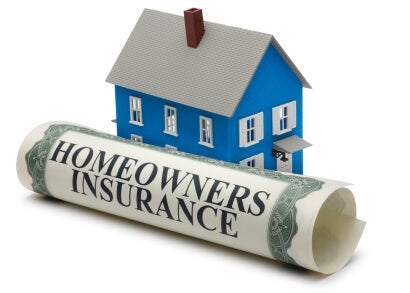So you've decided to purchase a new home. Congratulations!.While shopping for the perfect mortgage terms, don't forget to shop around for the perfect homeowner insurance. Homeowner insurance is not cheap but you will sleep better knowing you have it.There is no need to settle for inferior homeowners coverage. If you use the tips below, you can purchase homeowners insurance that guarantees your home and personal belongings are fully protected both now and in the future.


Homeowners insurance premiums will vary from person to person. But those who take an informed, diligent approach to homeowners insurance can boost their chances of getting the best homeowners policy at the lowest rate.Homeowners Insurance TipsLet’s face it—homeowners insurance can be confusing, particularly for those who are searching for coverage for the first time. Lucky for you, we’re here to help you discover the right homeowners policy.Here are five tips to help you secure homeowners insurance that meets or exceeds your expectations:

- Why Do I Need It?
- It enables you to protect your assets. Homeowners insurance safeguards the structure of your home and your personal property. It also protects you against liability for injuries to others or their property while they are on your property.
- Your mortgage lender probably requires you to have it. Most lenders will require you to maintain homeowners insurance for the duration of your mortgage. A lender usually will require you to list the company as a mortgagee on your homeowners policy. Moreover, if you let your homeowners coverage lapse, your mortgage lender likely will have your home insured at a much higher premium and with less coverage that what you had in the past.
- How Does It Work?
- Dwelling: Covers the costs associated with damage to your home and structures attached to it, including any damage to electrical wiring, heating systems or plumbing.
- Other Structures: Ensures you’re protected against damage to fences, garages and other structures that are on your property but not attached to your house.
- Personal Property: Guarantees you’re covered for the value of possessions like appliances, clothing and electronics if they are lost or damaged. This coverage applies even when your personal property is stored off-site, like in a storage unit or college dorm room.
- Loss of Use: Provides financial assistance to help you cover some of your living expenses if you need to temporarily vacate your house while it is being repaired.
- Personal Liability: Offers protection against financial loss if you are sued and found legally responsible for injuries or damages to someone else.
- Medical Payments: Covers the medical expenses for people who were hurt on your property or by your pets.
- Are There Homeowners Coverage Limits?
- Are There Optional Homeowners Insurance Coverages?
- Flood Insurance: Floods rank among the top natural disasters in the United States, and even an inch of water can cause severe property damage in a short period of time. The National Flood Insurance Program (NFIP) offers flood insurance coverage that will protect your home for up to $250,000 and your personal property for up to $100,000. Keep in mind that there often is a 30-day waiting period before a flood insurance policy goes into effect. This means if you want to buy flood insurance in the days leading up to a hurricane, you may be out of luck.
- Earthquake Insurance: Many Western states are prone to earthquakes. In California, Oregon and Washington, earthquake coverage is available from multiple insurance providers. Or, if you live outside these states and still want to purchase earthquake coverage, your state’s Department of Insurance can help you find licensed earthquake insurers.
- Daycare Coverage: If you take care of a friend’s children and are unpaid, your homeowners insurance offers limited liability coverage. Comparatively, if you provide daycare in your house, you will need to purchase insurance to cover the related liability.
- Additional Liability: You can purchase additional liability coverage any time you choose. These add-ons may require a nominal premium but sometimes makes a world of difference for homeowners.
- Attractive Nuisances: If you have an “attractive nuisance” like a swimming pool or trampoline, you may have to pay more for homeowners insurance than other property owners.
- Coverage Options: Adding flood insurance, earthquake insurance and other coverages may cause your homeowners insurance premium to rise.
- Home Protection System: If you have a home burglar alarm, security devices for windows or deadbolts on doors, you may be able to lower your insurance premium.
- Pets: Some insurance providers won’t offer homeowners coverage if you own certain types of pets.
- The Home Itself: Your house’s age, condition, construction and distance from a fire department and water source may impact your homeowners insurance premium.

- Shop around. Meet with various homeowners insurance providers and learn about different types of coverages so you can make an informed homeowners insurance decision.
- Bundle your homeowners and car insurance policies. In some instances, you may be able to save between 5 and 15 percent if you purchase your homeowners and car insurance from the same insurance company.
- Minimize risk across your house. Homeowners insurance offers immense protection, but you also can install storm shutters, enhance your heating system and perform assorted home upgrades to reduce risk across your home.
- Look at your credit score. With a good credit score, you may be able to lower your homeowners insurance premium. If you don’t know your credit score, you can request a free copy of your credit report annually from each of the three credit reporting bureaus (Equifax, Experian and TransUnion). Keep in mind that only some carriers use credit scoring.
- Stay with an insurer. If you find an insurance company that you like, stay with this company for several years, and you may be able to reduce your homeowners insurance premium over time.